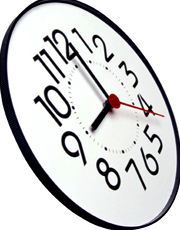 Seneca makes sense
Seneca makes sense
I pimp the philosopher Lucius Annaeus Seneca’s “On The Shortness of Life” any chance I get, it’s short, easy to read and packed with life changing wisdom (if you choose to listen). I stumbled across Seneca’s work when doing research for the Fundamental Success seminar, found his elegant distillation of the source of our most existential dread refreshing, and wound up becoming a bit of a stoic fanboy
I ain’t no Seneca scholar, just a guy that enjoys life and owe a lot of that enjoyment to the kind of worldview provided by old, dead dudes like Seneca. My goal with this post is to surface for you some of the most powerful concepts he lays down.
On the Shortness of Life
 Here’s the crux of Seneca’s teaching, most people die screaming (either physically or mentally) gripped by anxiety and fear that’s mostly due to not fully addressing all the decisions we can – living less life than we can. By, in Buddhist parlance, “living in the moment” we squeeze all the life out of our allotted time.
Here’s the crux of Seneca’s teaching, most people die screaming (either physically or mentally) gripped by anxiety and fear that’s mostly due to not fully addressing all the decisions we can – living less life than we can. By, in Buddhist parlance, “living in the moment” we squeeze all the life out of our allotted time.
Seneca says: “It is not that we have a short time to live , but that we waste a lot of it. Life is long enough, and a sufficiently generous amount has been given to us for the highest achievements if it were all well invested. But when it is wasted in heedless luxury and spent on no good activity, we are forced at last by death’s final constraint to realize that it has passed away before we knew it was passing. So it is: we are not given a short life but we make it short, and we are not ill-supplied but wasteful of it.”
Leisure
 Couldn’t find a quote that nails this concept directly, but it’s an important distinction that Seneca makes between “Leisure” and “Luxury”. Seneca’s definition of “leisure” appears to mean the ability to pursue both an examined life (history, philosophy) as well as what I call a decision based life – where your efforts are devoted to things you choose and you value. It’s not passive, it’s not narcotic – leisure is your highest self, defined by yourself.
Couldn’t find a quote that nails this concept directly, but it’s an important distinction that Seneca makes between “Leisure” and “Luxury”. Seneca’s definition of “leisure” appears to mean the ability to pursue both an examined life (history, philosophy) as well as what I call a decision based life – where your efforts are devoted to things you choose and you value. It’s not passive, it’s not narcotic – leisure is your highest self, defined by yourself.
Wasting Time
 As a professional procrastinator, this hits close to home for me. And as someone living a double life (full-time corporate prostitute, full-time author) the moments when I bring full value to both of those pursuits are transcendent. Wasted time “feels” bad, time spent in a valued pursuit “feels” good. So doing more of the latter tends fill one with an overall sense of self-esteem, where the former is hollow.
As a professional procrastinator, this hits close to home for me. And as someone living a double life (full-time corporate prostitute, full-time author) the moments when I bring full value to both of those pursuits are transcendent. Wasted time “feels” bad, time spent in a valued pursuit “feels” good. So doing more of the latter tends fill one with an overall sense of self-esteem, where the former is hollow.
Seneca says: “Men do not suffer anyone to seize their estates, and they rush to stones and arms if there is even the slightest dispute about the limit of their lands, yet they allow others to trespass upon their life—nay, they themselves even lead in those who will eventually possess it. No one is to be found who is willing to distribute his money, yet among how many does each one of us distribute his life! In guarding their fortune men are often closefisted, yet, when it comes to the matter of wasting time, in the case of the one thing in which it is right to be miserly, they show themselves most prodigal.”
Deferring (Augustus, Cicero, Drusus, Xercses)
 Postponing good things is just as odious as postponing good labor, it’s a gamble on an imagined stockpile of time. Look, we’re all on a freight train to the grave, and we have to manage the paradox that we could die in the next few seconds or sixty years from now (for our younger readers). Deciding how to manage that paradox is what will enable you to live a life well lived. When making decisions about what to do now vs. what to wait for, always include “if I die now” in your thinking – helps to frame your decisions and avoid regret.
Postponing good things is just as odious as postponing good labor, it’s a gamble on an imagined stockpile of time. Look, we’re all on a freight train to the grave, and we have to manage the paradox that we could die in the next few seconds or sixty years from now (for our younger readers). Deciding how to manage that paradox is what will enable you to live a life well lived. When making decisions about what to do now vs. what to wait for, always include “if I die now” in your thinking – helps to frame your decisions and avoid regret.
Seneca says: “You will see that the most powerful and highly placed men let drop remarks in which they long for leisure, acclaim it, and prefer it to all their blessings. They desire at times, if it could be with safety, to descend from their high pinnacle; for, though nothing from without should assail or shatter, Fortune of its very self comes crashing down.”
Self-adoption (be your own parent)
 My biggest gripes with most Americans I deal with is that they’re a bunch of immature babies, desiring much without desiring to do much. This is characterized by a lack of self-reliance, and possessing self-reliance requires that we provide our own mothering and fathering energy. Adulthood means relieving your parents of that responsibility and happily shouldering it. And if you’re going to be your own parent, why not be the parent you want?
My biggest gripes with most Americans I deal with is that they’re a bunch of immature babies, desiring much without desiring to do much. This is characterized by a lack of self-reliance, and possessing self-reliance requires that we provide our own mothering and fathering energy. Adulthood means relieving your parents of that responsibility and happily shouldering it. And if you’re going to be your own parent, why not be the parent you want?
Seneca says: “We are in the habit of saying that it was not our power to choose the parents who were allotted to us, that they were given to us by chance. But we can choose whose children we would like to be. There are households of the noblest intellects: choose the one into which you wish to be adopted, and you will inherit not only their name but their property, too. Nor will this property need to be guarded meanly or grudgingly: the more it is shared out, the greater it will become. These will offer you a path to immortality and raise you to a point from which no one is cast down.”
NOTE: Yikes, this has gone on long enough! I’ll let the old guy speak for himself from here on out. I hope you get as much from Seneca’s work as I do, it’s a source of continuous comfort and peace for me. Allowing me to fully commit to the things I value, and no longer be haunted by the things I’m told to value. Your life is for you to live, you own it, and only you can say if your life is well lived. (Yeah, I’m copping out early but it’s been a long day!)
Valuing Time
Seneca says: “I am often filled with wonder when I see some men demanding the time of others and those from whom they ask it most indulgent. Both of them fix their eyes on the object of the request for time, neither of them on the time itself; just as if what is asked were nothing, what is given, nothing. Men trifle with the most precious thing in the world; but they are blind to it because it is an incorporeal thing, because it does not come beneath the sight of the eyes, and for this reason it is counted a very cheap thing—nay, of almost no value at all. Men set very great store by pensions and doles, and for these they hire out their labour or service or effort. But no one sets a value on time; all use it lavishly as if it cost nothing.”
Distractions/Preoccupations
Seneca says: “But one man is possessed by an avarice that is insatiable, another by a toilsome devotion to tasks that are useless; one man is besotted with wine, another is paralyzed by sloth; one man is exhausted by an ambition that always hangs upon the decision of others, another, driven on by the greed of the trader, is led over all lands and all seas by the hope of gain; some are tormented by a passion for war and are always either bent upon inflicting danger upon others or concerned about their own; some there are who are worn out by voluntary servitude in a thankless attendance upon the great; many are kept busy either in the pursuit of other men’s fortune or in complaining of their own; many, following no fixed aim, shifting and inconstant and dissatisfied, are plunged by their fickleness into plans that are ever new; some have no fixed principle by which to direct their course, but Fate takes them unawares while they loll and yawn—so surely does it happen that I cannot doubt the truth of that utterance which the greatest of poets delivered with all the seeming of an oracle: “The part of life we really live is small.”
